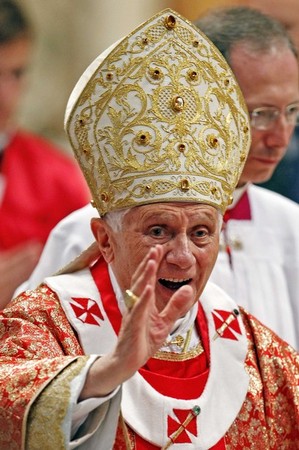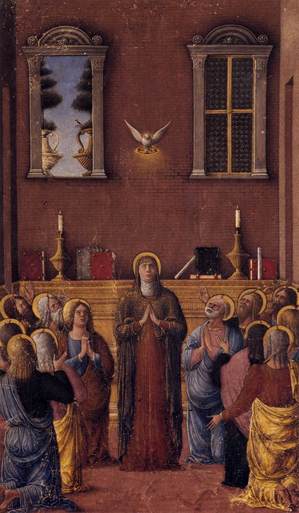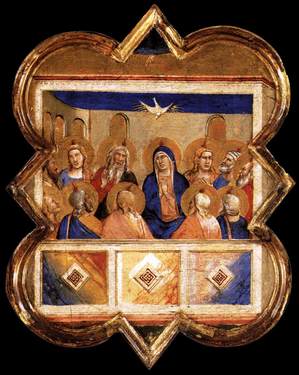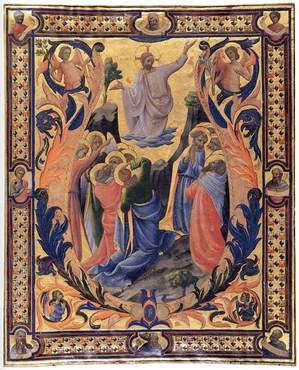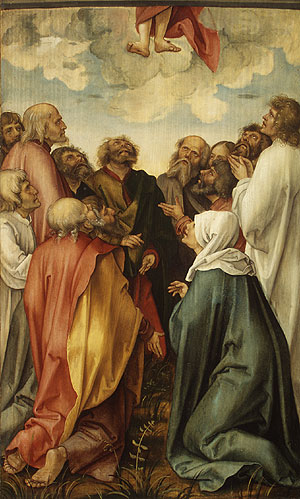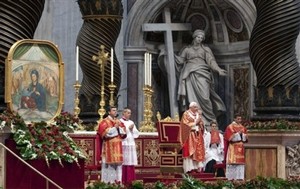
Today we celebrate the great solemnity of Pentecost. If, in a certain sense, all of the Church's liturgical celebrations are great, this one of Pentecost is so in a singular manner, because, arriving at the 50th day, it marks the fulfillment of the Easter event, of the death and resurrection of the Lord Jesus, through the gift of the Risen Lord's Spirit. The Church has prepared us in recent days for Pentecost with her prayers, with the repeated and intense plea to God for a renewed outpouring of the Holy Spirit upon us. The Church re-lived in this way the events of her origins, when the Apostles, gathered in the cenacle in Jerusalem "were perseverant and united in prayer together with some women and Mary, the mother of Jesus, and his brothers" (Acts 1:14). They were gathered in humble and confident expectation that the Father's promise communicated to them by Jesus would be fulfilled: "Before long you will be baptized in the Holy Spirit ... you will receive the power of the Holy Spirit, who will descend upon you" (Acts 1:5, 8).
